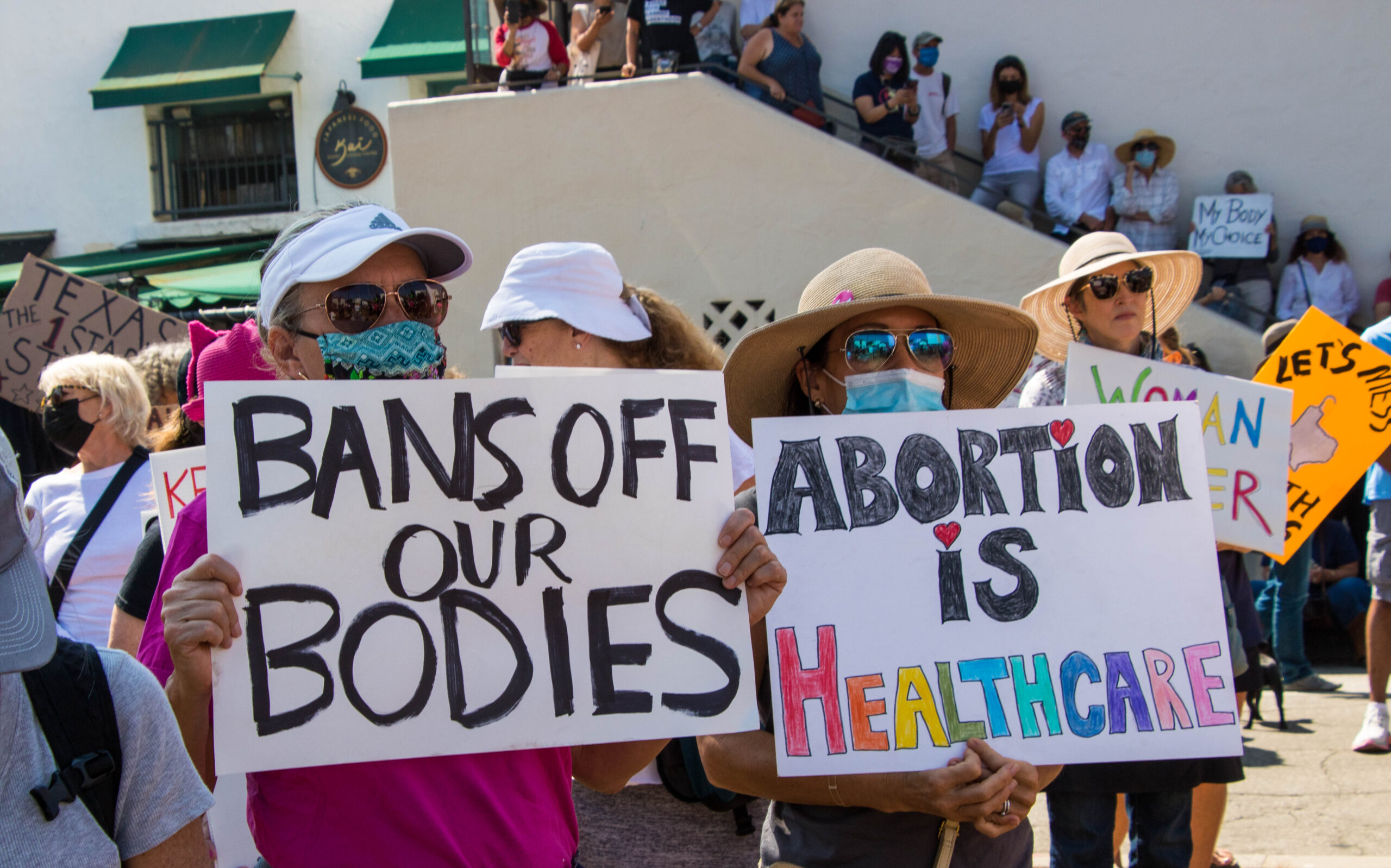An outright majority of likely 2022 midterm voters in Washington State say they would be “much less likely” to support a candidate for Congress or Legislature this year who supports a national or state abortion ban, the Northwest Progressive Institute’s latest statewide poll has found.
A total of 57% of 782 respondents surveyed said they would be less likely to support a candidate who favors a ban (50% much less likely, 7% somewhat), while 22% said they would be more likely (17% much more likely, 5% somewhat).
18% said it wouldn’t make a difference to their vote.
Only 3% were not sure.
Here’s the full text of the question we asked and the responses we received:
QUESTION: If a candidate for Congress or Legislature supported a national or state abortion ban, would that make you much more likely, somewhat more likely, somewhat less likely, or much less likely to vote for them, or would it not make a difference?
ANSWERS:
- More likely: 22%
- Much more: 17%
- Somewhat more: 5%
- Less likely: 57%
- Somewhat less: 7%
- Much less: 50%
- Wouldn’t make a difference: 18%
- Not sure: 3%
Our survey of 782 likely 2022 Washington State midterm voters was in the field from Wednesday, October 19th through Thursday, October 20th. The survey was conducted by Public Policy Polling for the Northwest Progressive Institute and has a margin of error of +/- 3.5% at the 95% confidence interval.
It utilizes a blended methodology, with automated phone calls to landlines (50%) and text message answers from cell phone only respondents (50%).
More information about the survey’s methodology is available here.
This finding speaks to why Republican Senate candidate Tiffany Smiley recorded and aired an ad beginning several weeks ago in which she said that despite being opposed to abortion herself, she would not support a federal abortion ban.
Democrats have retorted that Smiley is only saying this so she can get elected — because running on her actual beliefs would be disqualifying. And indeed, were Smiley to win a six year term, she could vote for a nationwide abortion ban in the next Congress at Mitch McConnell’s direction — and there would be no opportunity to replace her with a senator who supports reproductive rights until 2028.
Speaking at GOTV events with Senator Elizabeth Warren this weekend, Senator Murray noted that she and Warren were there when Donald Trump’s Supreme Court nominees showed up for their confirmation hearings in the Senate, said in response to questions that Roe was settled law, and that they respected it.
All were eventually confirmed to lifetime terms, over their objections. And once the third of them was confirmed (Coney Barrett), it took less than two years for Roe to be completely dismantled. The consequences have been disastrous: Women and people who can become pregnant have already suffered greatly.
Most of the Republican candidates running this year in Washington support abortion bans; there are very few Republicans left who support reproductive rights to any extent, and to our knowledge, there aren’t any pro-choice, pro-freedom Republicans in either the state House or state Senate right now.
The Washington State Republican Party is well aware that most voters in Washington support reproductive rights, so the party has done its best to simply avoid the topic. For example, if you search the 2020 WSRP platform, you won’t find the word “abortion” in it. It’s just not there. That’s a deliberate choice.
Republican legislative leaders J.T. Wilcox and John Braun have embraced this strategy. But they nevertheless hold views hostile to reproductive rights. Wilcox’s website declares in bold type: “JT’s conservative values are endorsed by Human Life PAC, the NRA, and the Assoc. of WA Business.” It’s telling that the anti-abortion Human Life PAC is the very first entity that Wilcox lists as a supporter.
The Republican Party in Washington State was not always like this.
In the 1970s, when Referendum 20 was on the ballot, progressive Republicans like Governor Dan Evans and Joel Pritchard campaigned for abortion to be legal, as detailed in this excellent historical primer by Angie Weiss for the UW.
Referendum 20 began in the Legislature (as all referenda do) as Senate Bill 68. Advocates for reproductive rights had to compromise on language to ensure there would be a majority in the Senate willing to vote in favor of the legislation.
“The vote was thoroughly bipartisan, with 14 Republicans and 11 Democrats voting in favor,” Weiss writes. “It is also noteworthy that most supporters in King County, the most populous county in the state, were Republicans, while the King County opposition in the Senate came largely from Democrats.”
Younger Washingtonians might have a hard time imagining that there was once a time when Republicans provided most of the votes to pass reproductive rights legislation out of the State Senate. But there was. It’s good to know your history.
The Republican Party has changed since the 1960s and 1970s, and today, candidates who support reproductive rights are not welcome in the party, with its progressive wing having died out. Meanwhile, there are extremely few conservatives left in the Democratic Party. Candidates’ positions on reproductive rights — like so many issues — now almost exclusively follow partisan lines.
These shifts have helped fuel a political realignment which has left Republicans largely out of power in Washington State for nearly three decades.
Republicans haven’t won a gubernatorial election since 1980, haven’t won a senatorial election since 1994, and haven’t controlled both chambers of the Legislature since the mid-nineties. Their drought seems likely to continue this year, and their stance opposing reproductive rights will be part of the reason why.

